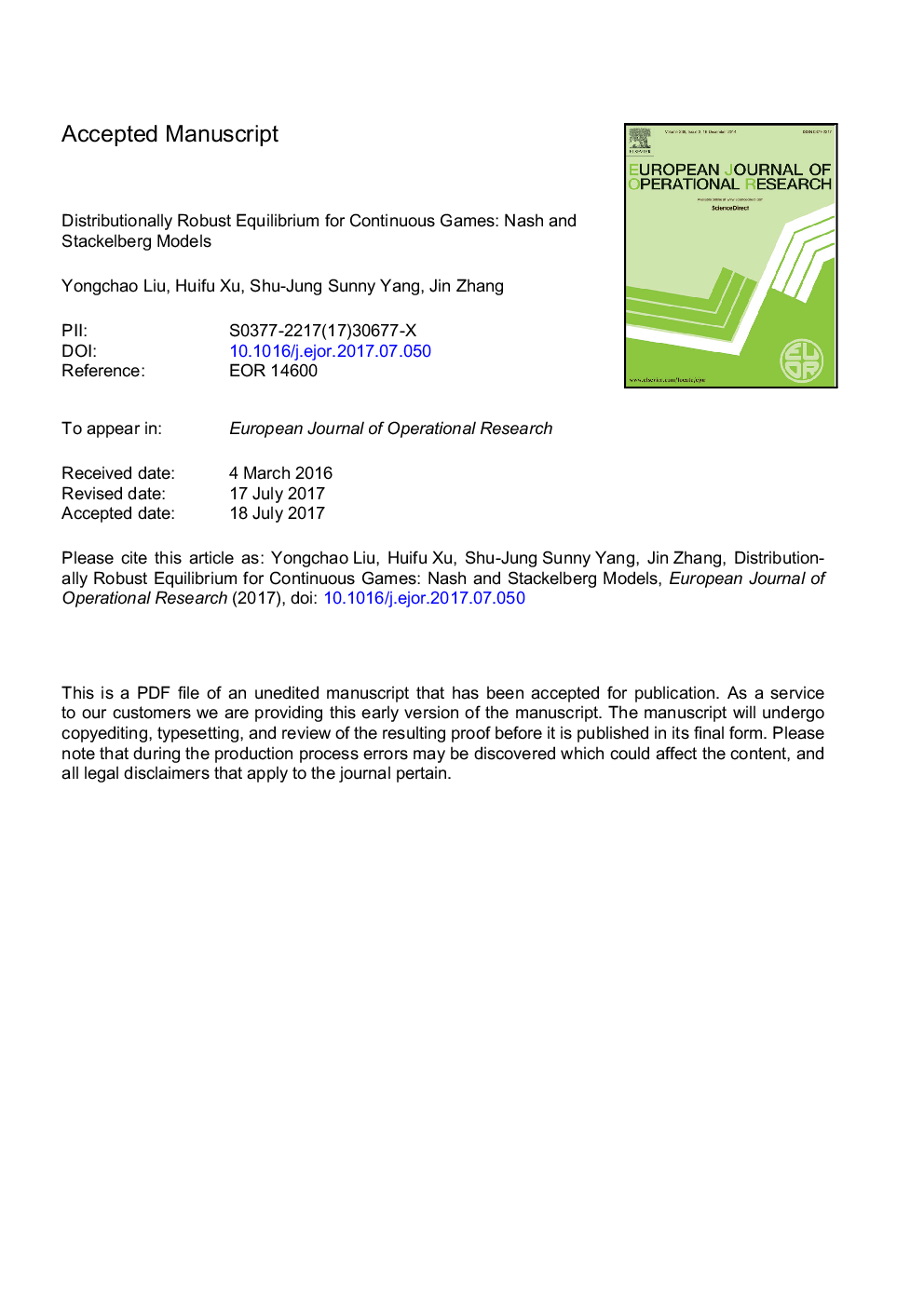| Article ID | Journal | Published Year | Pages | File Type |
|---|---|---|---|---|
| 6895310 | European Journal of Operational Research | 2018 | 36 Pages |
Abstract
We develop several distributionally robust equilibrium models, following the recent research surge of robust game theory, in which some or all of the players in the games lack of complete information on the true probability distribution of underlying uncertainty but they need to make a decision prior to the realization of such uncertainty. We start with a distributionally robust Nash equilibrium model where each player uses partial information to construct a set of distributions and chooses an optimal decision on the basis of the worst distribution rather than the worst scenario to hedge the risk arising from ambiguity of the true probability distribution. We investigate the existence of equilibrium, develop a numerical scheme for its computation, and consider special cases where the distributionally robust Nash equilibrium model can be reformulated as an ordinary deterministic Nash equilibrium. We then extend our modeling scheme to two possible frameworks of distributionally robust Stackelberg setting: a distributionally robust follower model and a distributionally robust leader model. These two frameworks are employed to study an innovative problem of hierarchical competition in a supply chain where a buyer not only invests in its own capacity to supply an end-product market under demand uncertainty but also outsources a certain amount of market supplies to multiply competing suppliers who invest in capacity for obtaining the buyer's orders. In this application, we show that the buyer has more incentives to invest in capacity whereas the suppliers have less to do so when those suppliers are confronted with more demand uncertainty in the end-product market over the buyer.
Keywords
Related Topics
Physical Sciences and Engineering
Computer Science
Computer Science (General)
Authors
Yongchao Liu, Huifu Xu, Shu-Jung Sunny Yang, Jin Zhang,
